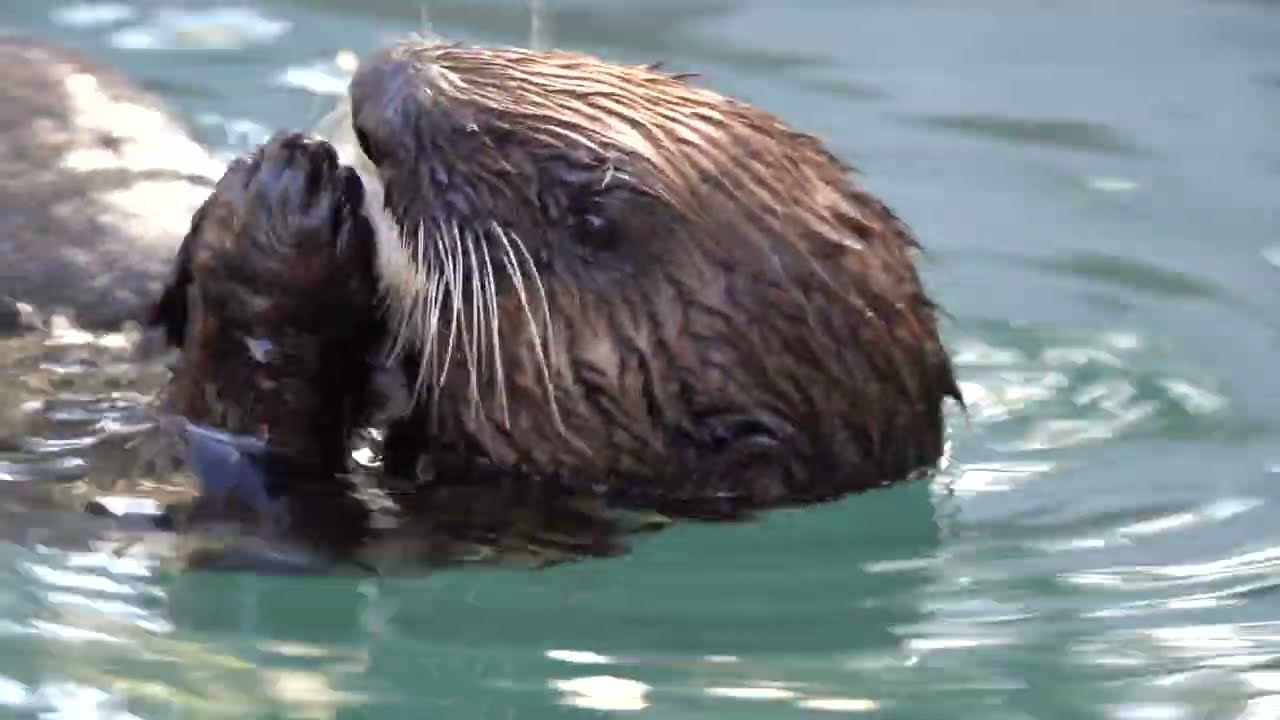– The importance of rescue efforts in the conservation of sea otters
– Characteristics and behaviors of sea otters that make them unique among marine mammals
– The role of sea otters in marine ecosystems and the impact of their decline
– Challenges faced by wildlife conservationists in rehabilitating and reintroducing sea otters into the wild
– Strategies for promoting the long-term survival of sea otters through conservation and public awareness
Rescued sea otters play a crucial role in the conservation of their species, serving as ambassadors for marine conservation efforts and helping to increase public awareness about the challenges facing these fascinating animals. Sea otters, often referred to as water weasels due to their similar appearance to their terrestrial cousins, are remarkable creatures that exhibit a range of unique behaviors and characteristics that make them vital to the health of marine ecosystems.
These mammals are known for their dense fur, the thickest of any animal, which keeps them warm in cold waters. Unlike most marine mammals that rely on fat for insulation, sea otters depend on their thick fur coats to maintain body heat, necessitating constant grooming to keep their fur in prime condition. This grooming behavior is crucial for their survival, as it helps to retain air within their fur, providing buoyancy and insulation.
Sea otters also play a pivotal role in their environment, particularly in kelp forest ecosystems. They are known as a keystone species because of their significant impact on the ecological balance. Sea otters promote the diversity and health of these underwater habitats by preying on sea urchins, which can overgraze and decimate kelp forests if left unchecked. The loss of sea otters in certain areas has led to dramatic ecological shifts, underscoring their importance in ocean ecosystems.
However, the conservation of sea otters is fraught with challenges. They face threats from oil spills, which can be deadly for these animals as oil compromises the insulating quality of their fur, leading to hypothermia. Additionally, sea otters can become entangled in fishing gear or suffer from health issues related to pollution and habitat loss. These challenges highlight the importance of rescue operations and rehabilitation efforts, through which injured or sick sea otters are nursed back to health and, when possible, returned to their natural habitat.
Wildlife conservationists and marine biologists work tirelessly to rehabilitate rescued sea otters, which requires a deep understanding of otter biology, nutrition, and social behaviors. Young otters, for instance, must learn essential survival skills, including how to groom their fur, forage for food, and avoid predators before they can be successfully released back into the wild. This rehabilitation process is crucial for the survival of individual animals and contributes to the overall health of the marine ecosystems where they live.
Promoting the long-term survival of sea otters necessitates a multi-faceted approach that combines rescue and rehabilitation efforts with broader conservation strategies. Protecting otter habitats, imposing stricter regulations on pollutants and fishing practices, and research to better understand sea otters’ needs are all critical components of these efforts. Public education and awareness campaigns also play a vital role in conservation, as they help to foster a sense of stewardship and encourage support for otter protection measures.
The story of the rescued sea otter embodies the broader challenges and triumphs of wildlife conservation. Each otter rehabilitated and released back into the wild represents hope for the future of their species and the ecosystems that depend on them. Through dedicated conservation efforts, overcoming the obstacles facing sea otters and ensuring these charismatic water weasels continue to thrive in their natural habitats is possible. Engaging the public in these efforts through educational initiatives and opportunities to support conservation work is crucial for the long-term success of sea otter conservation efforts.
*****
Source Description
Happy otterversary, Sushi! This little water weasel joined our sea otter family five years ago today after being found as an orphan and rescued by the Monterey Bay Aquarium.

